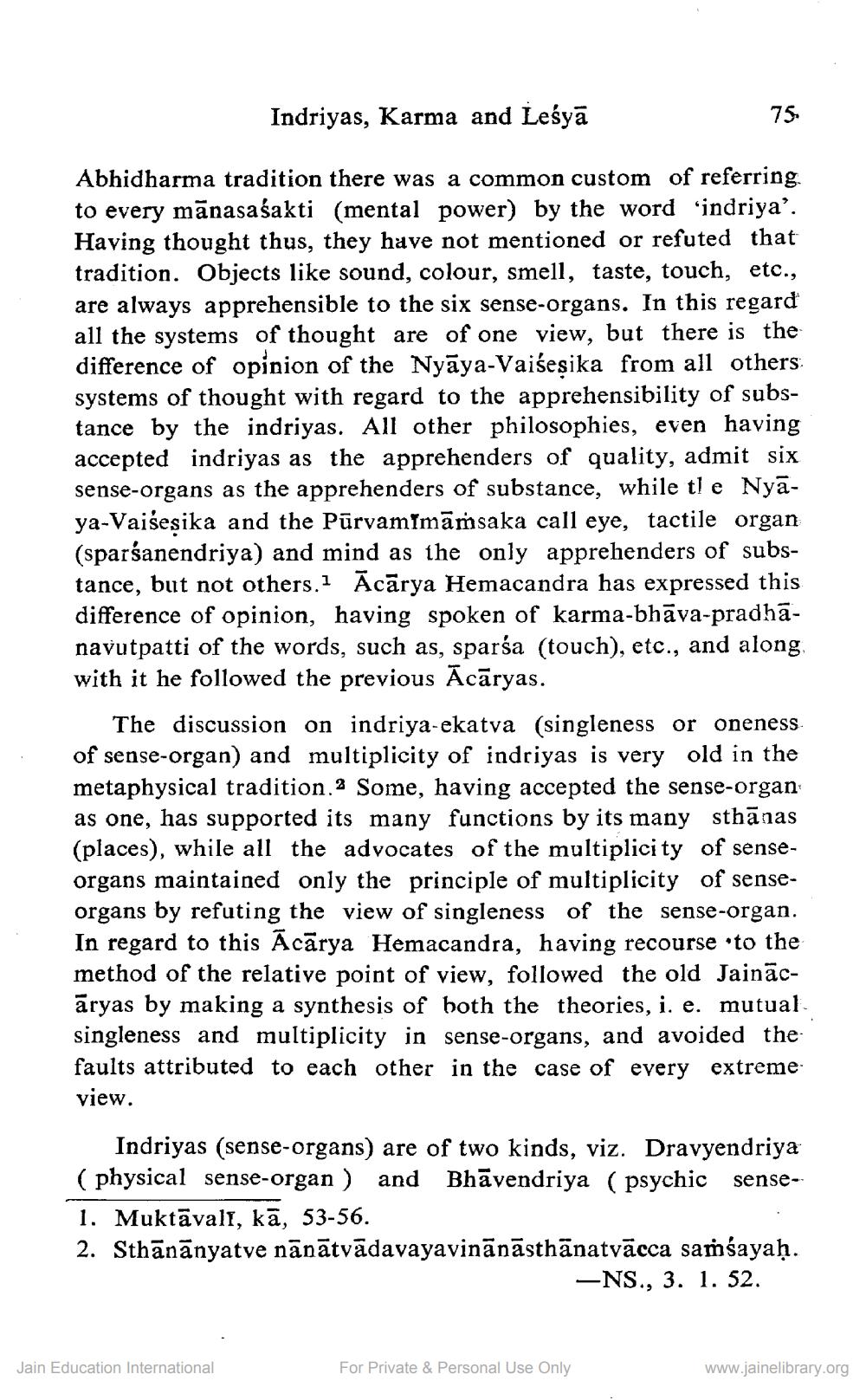________________
Indriyas, Karma and Lesya
Abhidharma tradition there was a common custom of referring to every manasaśakti (mental power) by the word 'indriya’. Having thought thus, they have not mentioned or refuted that tradition. Objects like sound, colour, smell, taste, touch, etc., are always apprehensible to the six sense-organs. In this regard all the systems of thought are of one view, but there is the difference of opinion of the Nyaya-Vaiśeṣika from all others systems of thought with regard to the apprehensibility of substance by the indriyas. All other philosophies, even having accepted indriyas as the apprehenders of quality, admit six sense-organs as the apprehenders of substance, while tl e Nyaya-Vaišeṣika and the Pūrvamĭmāmsaka call eye, tactile organ (sparśanendriya) and mind as the only apprehenders of substance, but not others.1 Acarya Hemacandra has expressed this difference of opinion, having spoken of karma-bhāva-pradhānavutpatti of the words, such as, sparśa (touch), etc., and along with it he followed the previous Ācāryas.
75.
The discussion on indriya-ekatva (singleness or oneness of sense-organ) and multiplicity of indriyas is very old in the metaphysical tradition. Some, having accepted the sense-organ as one, has supported its many functions by its many sthānas (places), while all the advocates of the multiplicity of senseorgans maintained only the principle of multiplicity of senseorgans by refuting the view of singleness of the sense-organ. In regard to this Acarya Hemacandra, having recourse to the method of the relative point of view, followed the old Jainacaryas by making a synthesis of both the theories, i. e. mutual singleness and multiplicity in sense-organs, and avoided the faults attributed to each other in the case of every extreme view.
Indriyas (sense-organs) are of two kinds, viz. Dravyendriya (physical sense-organ) and Bhāvendriya ( psychic
Jain Education International
1. Muktāvalī, kā, 53-56.
2. Sthānānyatve nānātvādavayavinānāsthānatvācca saṁśayaḥ.
-NS., 3. 1. 52.
For Private & Personal Use Only
sense
www.jainelibrary.org




